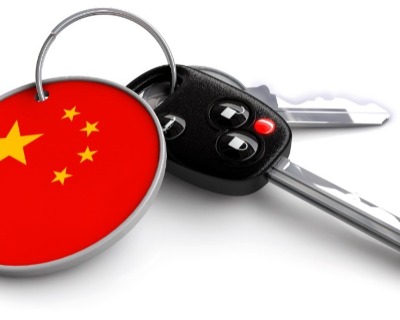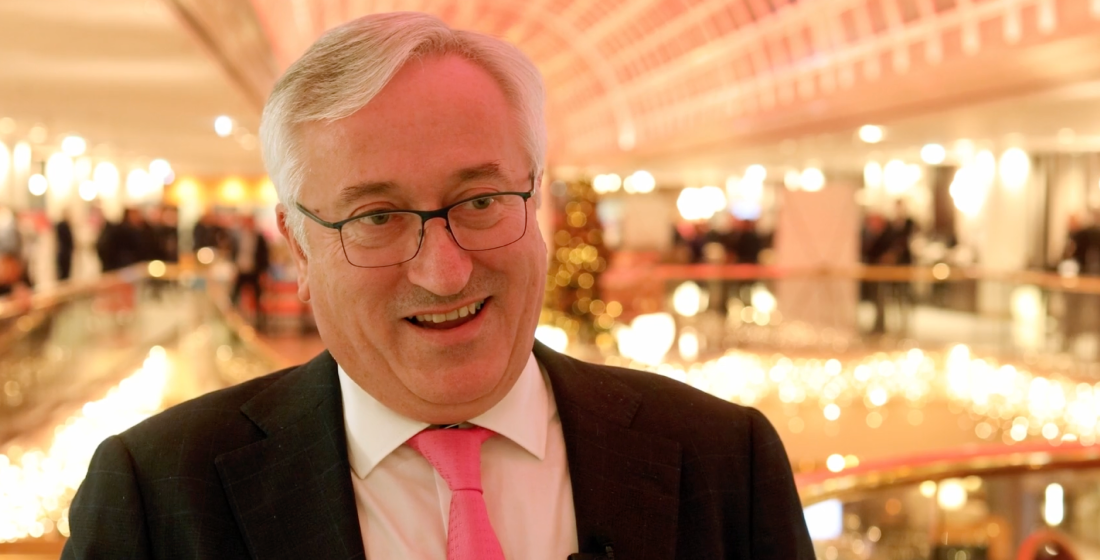US-China get electric on the auto front
Jonathan Bell, Editor-in-Chief at TXF gives us his take on news that Tesla is to build an EV Gigafactory in Shanghai, as well as a review of TXF's market coverage from the last 7 days

Given the demographics, it doesn’t take a genius to recognise that China will be the largest electronic vehicle (EV) market of the future. So, the news this week that Tesla is to build an EV Gigafactory in Shanghai can be seen as a natural and necessary progression for the US auto manufacturer and the global expansion plans of owner Elon Musk.
But interestingly, the news also comes days after the auto manufacturer has had to raise prices by 20% in China to respond to import tariffs imposed due to Chinese reciprocal action following President Trump’s recent imposition of tariffs on a swathe of Chinese exports to the US.
Tesla said yesterday: "We have signed a cooperative agreement for Tesla to start building Gigafactory 3, a new electric vehicle manufacturing facility in Shanghai. We expect construction to begin in the near future, after we get all the necessary approvals and permits. From there, it will take roughly two years until we start producing vehicles and then another two to three years before the factory is fully ramped up to produce around 500,000 vehicles per year for Chinese customers.”
The company added: “Tesla is deeply committed to the Chinese market, and we look forward to building even more cars for our customers here. Today’s announcement will not impact our US manufacturing operations, which continue to grow.”
Analysts predict that this latest agreement and branch out to a foreign market will put considerable pressure on Tesla to raise new financing. But with the end goal being the biggest EV market, there is little doubt that investors will be waiting in the wings. It will be interesting to see how the plant will be financed and what sort of financial assistance and/or incentives is provided by the Chinese authorities.
Commenting on the Tesla Chinese development, Christian Stadler, Professor of Strategic Management at Warwick Business School in the UK says: "This move will help Tesla mitigate the burgeoning trade war between the US and China, especially as China is an important market for electric vehicles.
"But the most pressing concern for Tesla is its inability to manufacture cars quickly and efficiently. Production of the Model 3 is still behind schedule and spending a lot of money on a new factory in China will not help this. If they can't do it in the US, why would Tesla be able to do it in China?”
But, he adds: "China is having a big push on electric cars so it is a good idea to have a presence there, especially as Chinese companies like BYD are very good at building electric cars, so this move will help Tesla to keep an eye on them and learn from its competitors.
"In March Tesla said it would need to raise another $3 billion in the second half of 2019 to make up for this lagging Model 3 production. That is on top of the $38 billion in equity it has already raised. It has a market cap of around $50 billion but that depends on the share price and investors keeping faith despite there being no sign of a profit any time soon.
He concludes: "Amazon did not turn a profit for the first decade of its existence, but it was growing rapidly. Tesla, though, has a bottleneck in production that is slowing its growth"
Tesla certainly doesn’t do things by halves though. Back in 2015 it started building its Gigafactory 1 – the world’s largest lithium-ion battery factory at a place aptly called Sparks at the Tahoe-Reno Industrial Center in Nevada. This super impressive plant began mass battery production in 2017. By mid- 2017 the company had spent $2 billion on the project – which is estimated to eventually cost in the region of $5 billion. The factory has been built in partnership with Panasonic Corp. The battery plant is essential to the Tesla ambition to sell 500,000 EVs by 2020.
Tesla is headquartered in California, but when initially searching for a site for Gigafactory 1 the company looked at four US states. Nevada offered the best incentives however. Nevada Governor Brian Sandoval stated at the time that it was estimated that Nevada would enjoy $100 billion in economic benefit over two decades from the construction and operation of the plant.
Tesla also owns another huge plot of land next to this plant – so presumably the company has sights on expansion sometime in the future there. As I mentioned – Tesla doesn’t do things in halves!
One of the other major factors for Tesla on the siting of this plant was the supply of lithium. Although half the world’s supply of lithium is found in Bolivia, there are also significant deposits of this super-element in the state of Nevada. Companies such as ABL and CAD are among those at the forefront of lithium development in the state.
And the supply of such super elements can be strategic to all manner of new industries – which leads to a factor known as ‘resource nationalism’ where resources may be limited and strategic to a particular industrial production. As TXF noted in an article last month, entitled: ‘No rules resource nationalism: A growing threat to electric vehicles?’ We noted that ownership of controlling interests in battery minerals is a key strategy for all developed markets and the major traders. To read more go to: https://www.txfnews.com/News/Article/6453/No-rules-resource-nationalism-A-growing-threat-to-EVs
Looking at the news provision from our journalists last week, we dug into some meaty topics:
TXF reporter, Max Thompson, caught up with Eriks Atvars, global head of trade and export finance at UniCredit, to discuss the bank's growth of ECA business in Russia and Turkey. Atvars' also highlights the current challenges in the market from extreme pricing pressure resulting from excess liquidity to increasingly volatile risk appetites amid a changing geopolitical landscape.
Katharine Morton, Head of Trade, Treasury and Risk mulled over the implications of the accelerating trade wars on the fundamentals of relationships between global powers, and chatted with one international treasurer about letters of credit remaining a great tool for international trade. All of Katharine's articles can be found in TXF's FIT Zone, a brand new content hub for all things trade, treasury and risk.
With a number of green energy proposals in the pipeline, Max Thompson interviews Kutoane Kutoane, CEO at ECIC, who discusses the South African ECA’s plan to catch the renewables train and how ECA-DFI cooperation is laying a seedbed for commercial banks, and key to getting complex, multi-billion deals across the line on the continent.
For many borrowers ECAs and DFIs can both be ill-fitting pegs in a very deep infrastructure hole, particularly on multisourced financings. According to Arun Kumar Sharma, CIO of Global Financial Markets at the IFC, the way forward is better with ECA and DFI collaboration. But how? As interviewed by Max Thompson.
Fatick Hussain, finance director at Salalah Methanol, talks to Max Thompson about the Omani government’s push for infra projects, how the sultanate’s oil and gas sector is set for significant growth, and why ECAs need to take a more collaborative approach to large-scale project financings.
TXF News in Brief top 5 picks - Export Finance |
TXF News in Brief top 5 picks - Commodity Finance |
|---|---|
|
|
|
|
|
|
|
|
|
|
|
|
|
|
Well, that’s all for now folks. Please do drop us a line if you have any news and want to broadcast something, or if you have any suggestions/feedback on the editorial front.
Have a great rest of the week.
Cheers
JB





